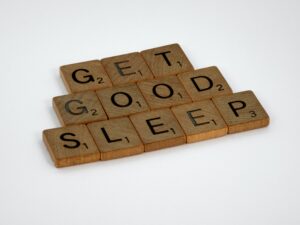
The human body is a fantastic bio-computer. We have been around for more than 300k years, and life was pretty much the same until we invented agriculture 10k years ago!
Sounds like it was long time ago but from an evolutionary point of view, it was just yesterday! The industrial revolution happened in the 19th century, and in the beginning of 20th century electricity was starting to be available to most homes. By 1950, we saw an increase in white collar jobs (those who sat behind a desk most of their working hours).
In the beginning of the 21st century, time became a commodity. Work and private life starting to merged and the idea of being a workaholic became very popular among most industries. Long working hours inside an office, all nighters at the office to finish that “important” project, eating on the run, no time to go to the gym or to be with family became very common “excuses”. Somehow having a career became more important than living a healthy life. And we were willing to sacrifice it all!
Then social media came into the picture, online dating, home delivery, online shopping, unlimited on-demand movies and series made us more sedentary than ever and our mobility index dropped.
After long hours seated behind a desk, we spent hours commuting to arrive home and stay long hours laid down on the couch scrolling social media or watching TV, compromising our ability to naturally fall asleep.
We evolved, our lifestyle changed faster than ever but what does it mean for the body?
Unfortunately, our body does not evolve as fast as our lifestyle did. Despite all inventions, upgrades, life improvements, the human body still behaves exactly the same way when it was engineered 300k years ago.
The desynchronization of the human body and human lifestyle refers to the mismatch between our biological rhythms and the demands of modern life. Humans evolved to have natural circadian rhythms that govern when we sleep, wake, eat, and perform other daily activities. These rhythms are regulated by internal biological clocks, which are influenced by external cues such as daylight and social interactions.
However, modern lifestyle factors such as shift work, artificial lighting, and constant access to technology can disrupt these rhythms and create a mismatch between our biological needs and our daily routines. For example, many people work night shifts that require them to be awake and alert during times when their bodies naturally want to sleep. This can cause a host of health problems, including sleep disorders, digestive issues, and mood disturbances.
Similarly, the use of artificial lighting can disrupt our natural sleep-wake cycles by suppressing the production of the hormone melatonin, which is responsible for regulating sleep. This can lead to difficulty falling asleep, insomnia, and other sleep disorders.
In addition, the constant use of technology and exposure to blue light from electronic devices can also disrupt our circadian rhythms and make it harder to fall asleep at night. This can lead to fatigue, daytime sleepiness, and other health issues.
Overall, the desynchronization of the human body and human lifestyle can have significant negative impacts on our health and well-being. It is important to prioritize healthy habits such as regular exercise to increment calorie expenditure and to promote sound sleep in order to lower stress levels and promote recovery. Exposure to natural light helps the body regulate melatonin production, and consistent movement helps maintain our biological rhythms and promote optimal health.
The desynchronization of the human body and the human evolution is a real problem and if we don’t pay close attention to it, our current lifestyles will take over and limit the ability of our body to the performance levels it was designed to have.






